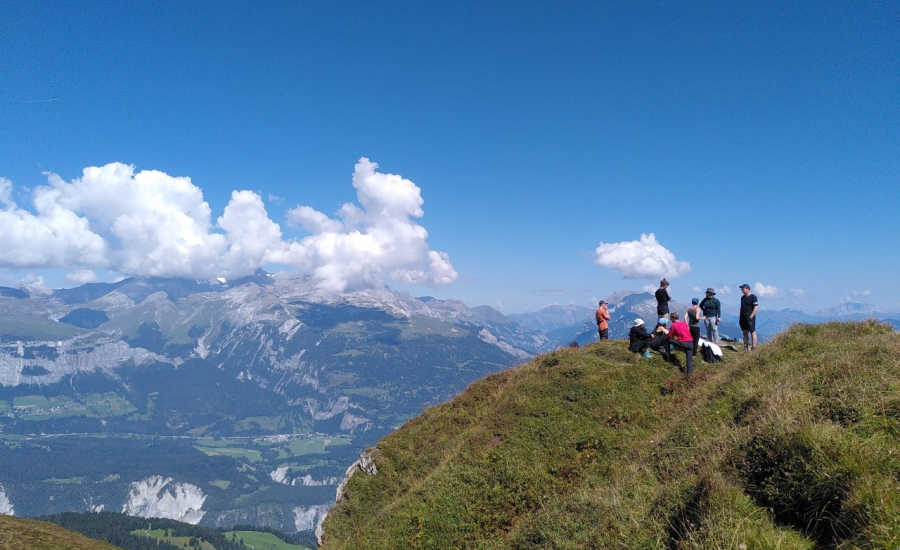Agrobiodiversity Summer School 2022 at CISPAC (Santiago de Compostela)

Agrobiodiversity Summer School will be held from tomorrow, September 1, at CISPAC
The Agrobiodiversity Summer School is a collaboration between the ZHAW Geography of Food research group, the Swiss Research Institute of Organic Agriculture (FiBL), the University of Santiago de Compostela, through the HISTAGRA research group, the CISPAC and research institutes from Slovenia and Hungary, in which the course will take place in the coming years.
Through this International Summer School, the different perspectives around agrobiodiversity and its contribution to the sustainability and resilience of food systems will be addressed. In small groups of students and thanks to international experts and agroecological producers, the participants in the course will have the opportunity to investigate in depth the challenges and challenges of existing local production systems and how the food chain is connected to agrobiodiversity.
Agrobiodiversity includes the diversity of crops and livestock species and varieties, the diversity of food production and supply systems, as well as different agricultural practices and intensities, and the biodiversity that indirectly supports agriculture through the provision of ecosystem services. Therefore, agrobiodiversity is essential for locally adapted and resilient land management around the world and ultimately contributes to the achievement of several of the Sustainable Development Goals (SDGs). Among the teachers who will be counting on Agrobiodiversity Summer School are Lourenzo Fernandez Prieto and David Soto Fernández, both from USC, Manuel Gonzalez de Molina and Gloria Guzman from the University of Pablo de Olavide, and Bernadette Oehen and Grüter Roman from the Swiss Research Institute of Organic Agriculture (FiBL). At the same time, there will be the participation of agroecological farmers, such as Finca El Cabillón or experiences such as Eo Alimenta, the first participatory food strategy in Galicia, also led by USC.
The Agrobiodiversity Summer School consists of a preparatory phase and a 10-day study week between Santiago de Compostela and Ribadeo from September 1 to 10. After successful completion of the course, the student will receive 4 ECTS. The summer school is aimed primarily at students enrolled in a master's program related to agricultural sciences, environment, food technologies, rural development, or sustainability assessment. Undergraduate students are also invited to apply but will be given second priority. For any questions, you can contact gof.iunr@zhaw.ch or histagra@usc.es for any questions related to the Agrobiodiversity Summer School 2022.
For questions, you can contact gof.iunr@zhaw.ch or histagra@usc.es for questions related to Agrobiodiversity Summer School 2022.
More information at https://www.zhaw.ch/de/lsfm/institute-zentren/iunr/environmental-and-agrofood-systems/geography-of-food/agrobiodiversity-summer-school/